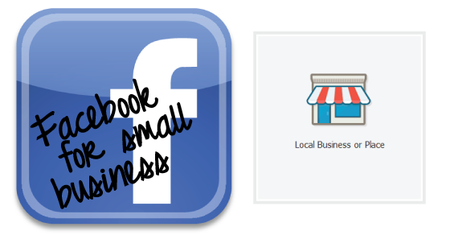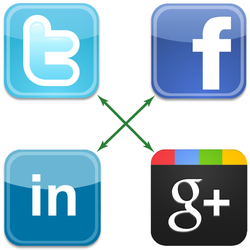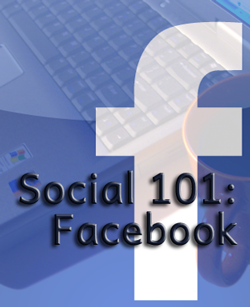 For small businesses that are thinking about using social media or starting to dip their toe in the water, the sheer number of tools (i.e., social networks) available to use can be staggering. One social network that is often the first businesses sign up for is Facebook, but not everyone is convinced it has value.
For small businesses that are thinking about using social media or starting to dip their toe in the water, the sheer number of tools (i.e., social networks) available to use can be staggering. One social network that is often the first businesses sign up for is Facebook, but not everyone is convinced it has value.
There are so many advantages for small businesses if they choose to use Facebook. Here are just five reasons we encourage many of our clients to be active on this channel - and why you should consider Facebook for your small business:
1) Easy two-way conversation
While business pages can’t go to personal profiles and engage with users individually, they can share engaging content that gets the conversation going on their page. It’s not always about making a sale - often the purpose of these conversations is simply to stay top of mind with fans so when they do need your small business’ services, it’s more likely they’ll look to you first.
2) Scalability and reach
Sure Facebook is the largest social network in the world with 1.15 billion accounts and over half (699 million)* are active daily. The truth is, despite that large number, if your audience isn’t on Facebook then your business shouldn’t be either. But if your audience is on Facebook, then the advantage of being able to grow your business by sharing helpful content to a growing audience is too good to pass up.
*As of June 2013
3) Cost-effective platform
Facebook is not free. There is no monetary cost to using it, unless you want to place ads (more on that later) but there is a time cost. Your time as a small business owner has a great deal of value, so the time spent promoting your business through social media channels must be effective and efficient. We believe Facebook can be very cost-effective and using it to grow your business doesn’t have to take a huge amount of time.
4) Cost-effective advertising
Have you looked at the cost of a newspaper or magazine ad lately? Sometimes that’s the best route for a small business to go because the return is well worth the investment. However, many small businesses simply don’t have the budget to make that gamble. Traditional advertising is based on a broadcasting model with minimal targeting available. Facebook advertising gives small businesses the ability to buy inexpensive ads that are highly targeted to the interests of fans and non-fans.
5) Build a community
As you increase the two-way conversations with a targeted audience, you’ll eventually find you’ve built a community - not a fan list. The connection within a community is much stronger and longer-lasting than the mere association between a business and its customers.
Given how many people use Facebook and how simple a tool it is to use, Facebook is often the easiest and best way to start using social media for your small business.
What other reasons compel you to use Facebook for your small business?
*****
All month long here on the Wellman Wilson blog, we’re going back to the basics in honour of the newly launched Simple Start program. The program is designed to walk you through launching (or restarting or improving) your presence on either Facebook or Twitter. It’s not just for beginners either - even experienced social media users need that fresh start every now and then. Grab the free version of Simple Start by signing up to our newsletter now.





